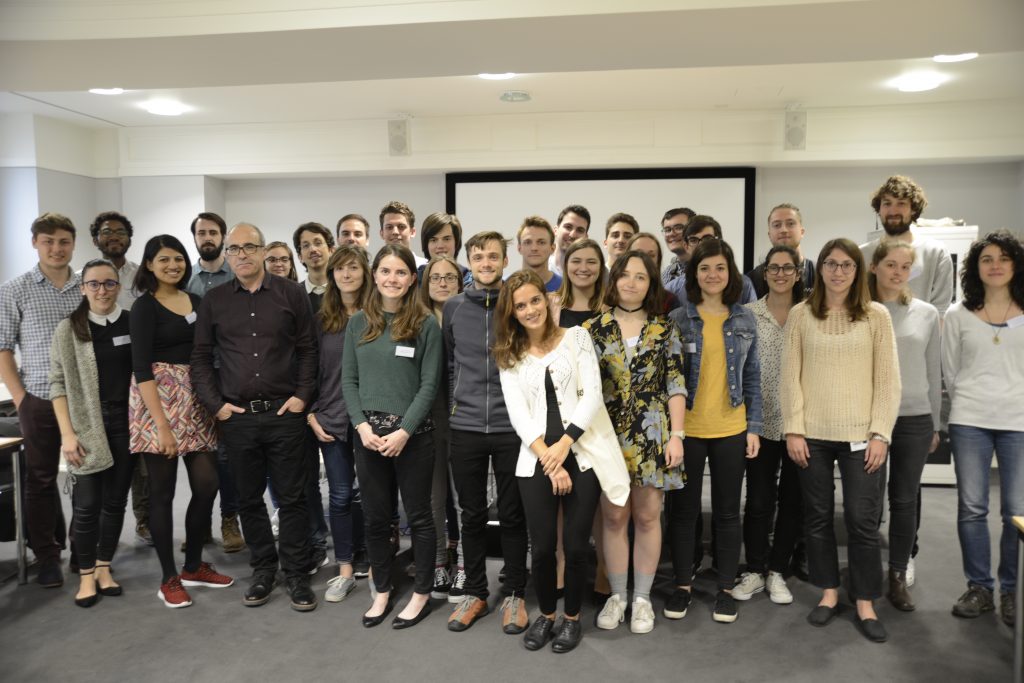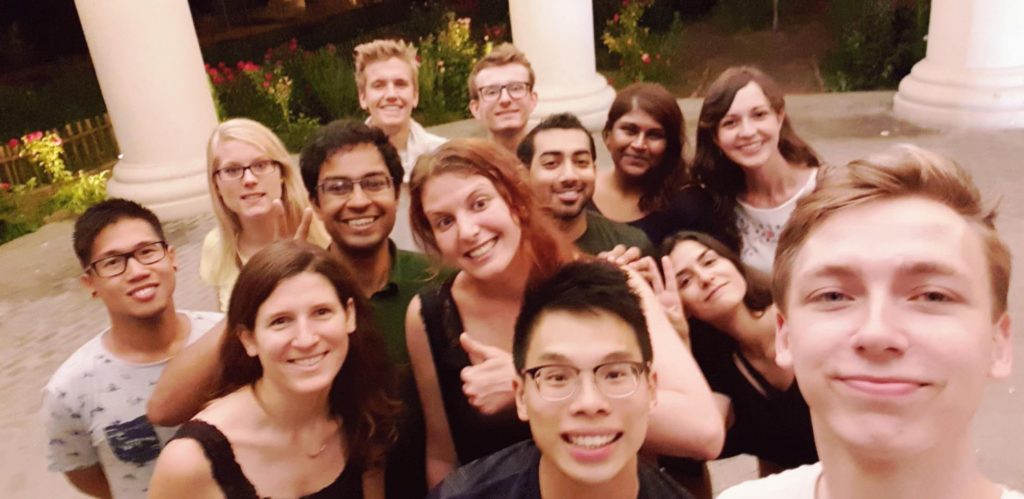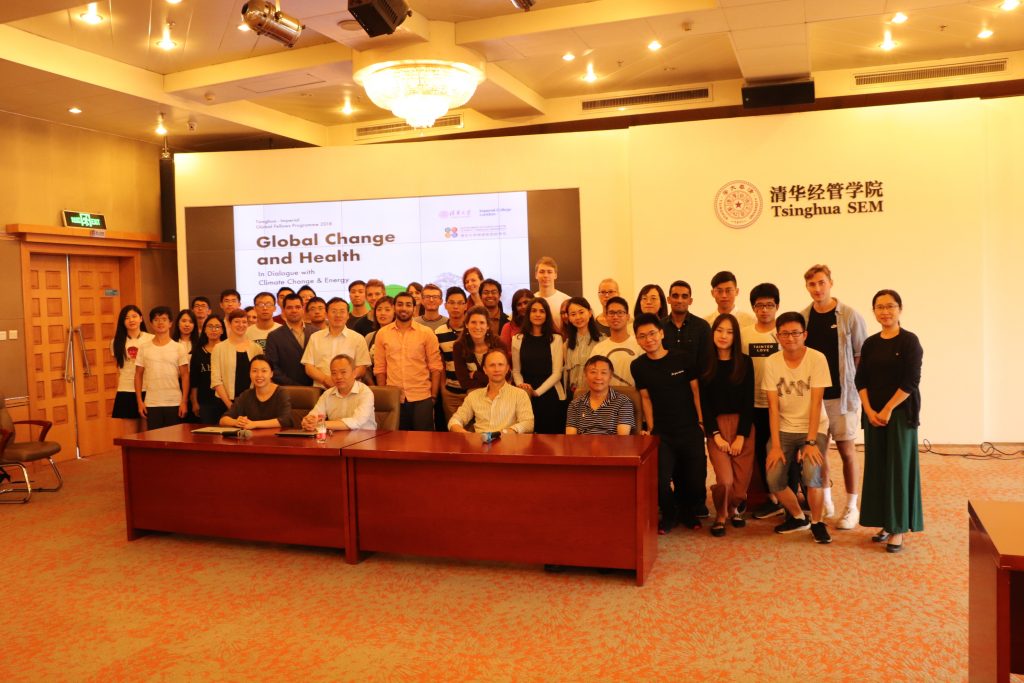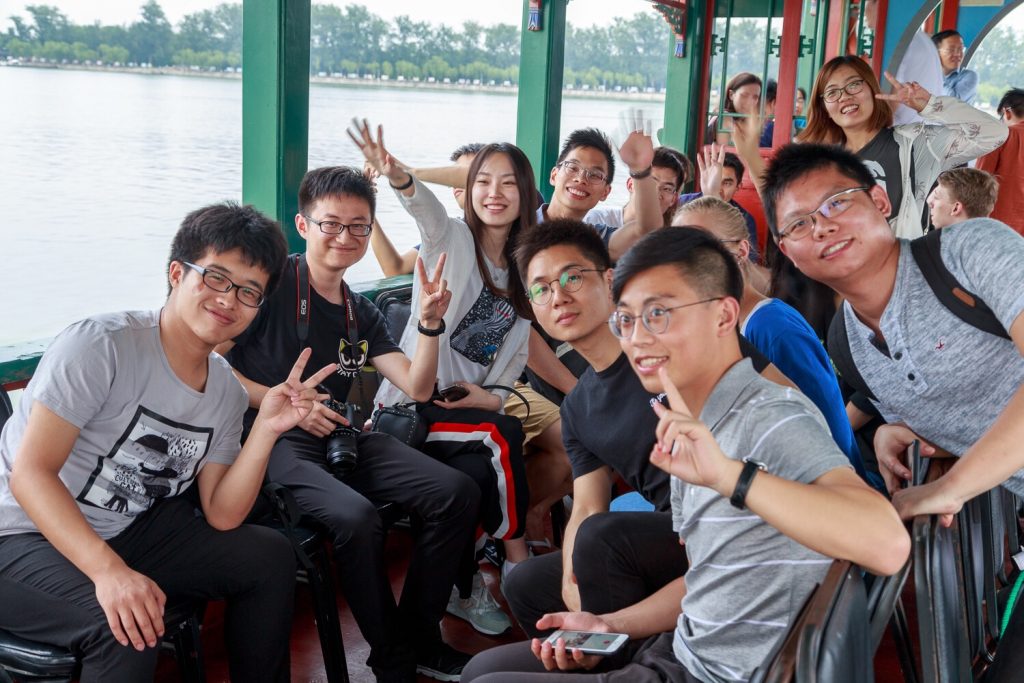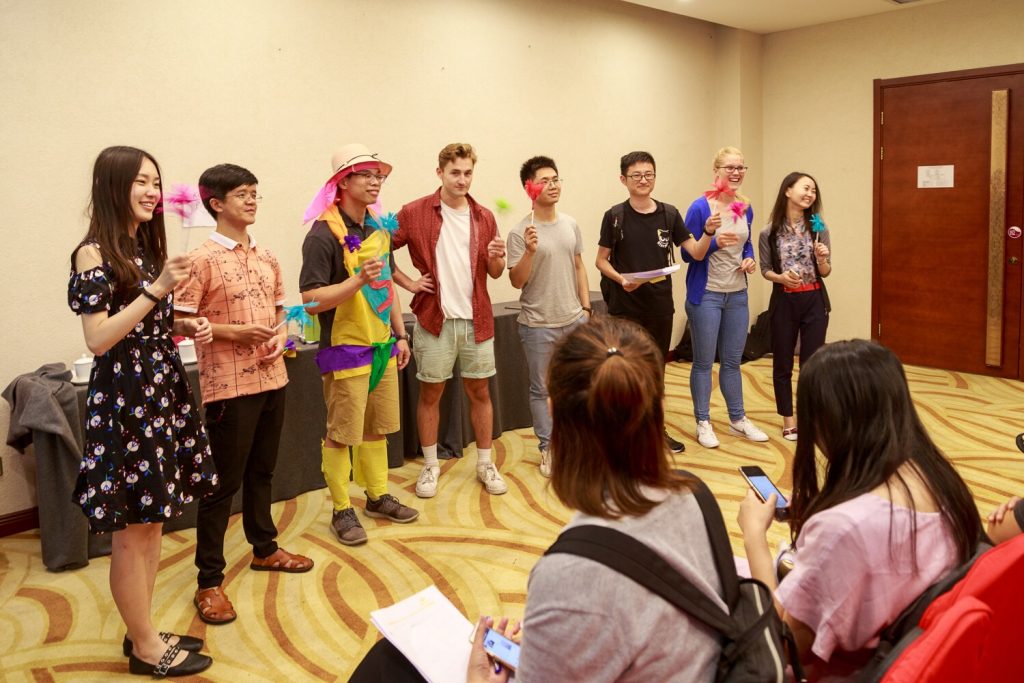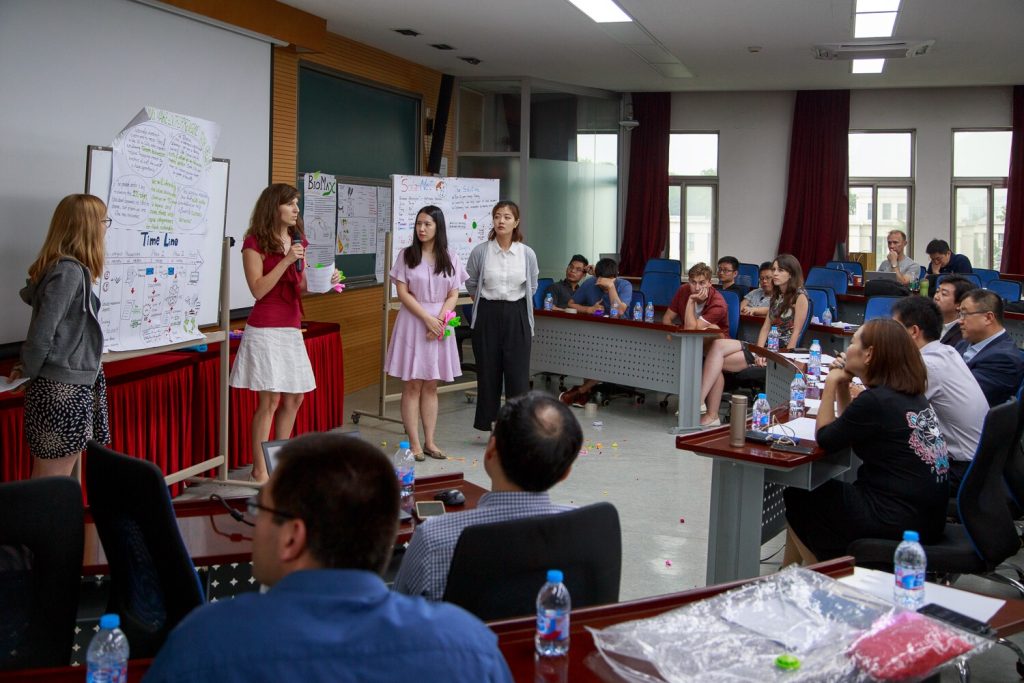MRC-LMS PhD Workshop & Careers Forum at the Wellcome Collection, Euston Square
The second annual Medical Research Council (MRC) London Institute of Medical Sciences (LMS) PhD Student Retreat took place on Friday 25 May 2018. Held at the iconic Wellcome Collection in Euston Square, this event offered PhD students from all year groups the chance to engage and socialise with students from outside of their immediate research section.
Building on the success of the inaugural 2017 retreat held at Kew Gardens, this year’s event had a renewed focus on ‘Career Development and Networking’; prompting students to start considering what future avenues they may wish to explore upon completion of their PhD studies.
In this vein, the day began with a Networking Workshop delivered by Katie Dallison from the Imperial Careers Service, which provides students with free help and advice regarding career advancement, like CV checks and interview preparation. Katie highlighted the importance of making connections in all types of professional events, and shared tips to reduce pre-networking anxiety. During the workshop, students also had the opportunity to practice and refine their “elevator pitches”, get further ideas of recruitment processes, and recognise uses and downfalls of social media.
The students had the ability to use these newly acquired skills in the PhD student poster presentations, facilitating discussion based on current research that PhD students are carrying out at the LMS. The topics ranged from patient-derived neurons to study Down syndrome, to 3D genome architecture and gene regulation, to the evolution of transposable elements. Particularly outstanding posters were acknowledged by the Poster Awards, where this year, the first place was awarded to Helen Paterson for her poster entitled ‘The role of splicing factors in metabolic health and disease’, followed in close succession by Toni Beltran and Holly Simpson Ragdale, in 2nd and 3rd place respectively.
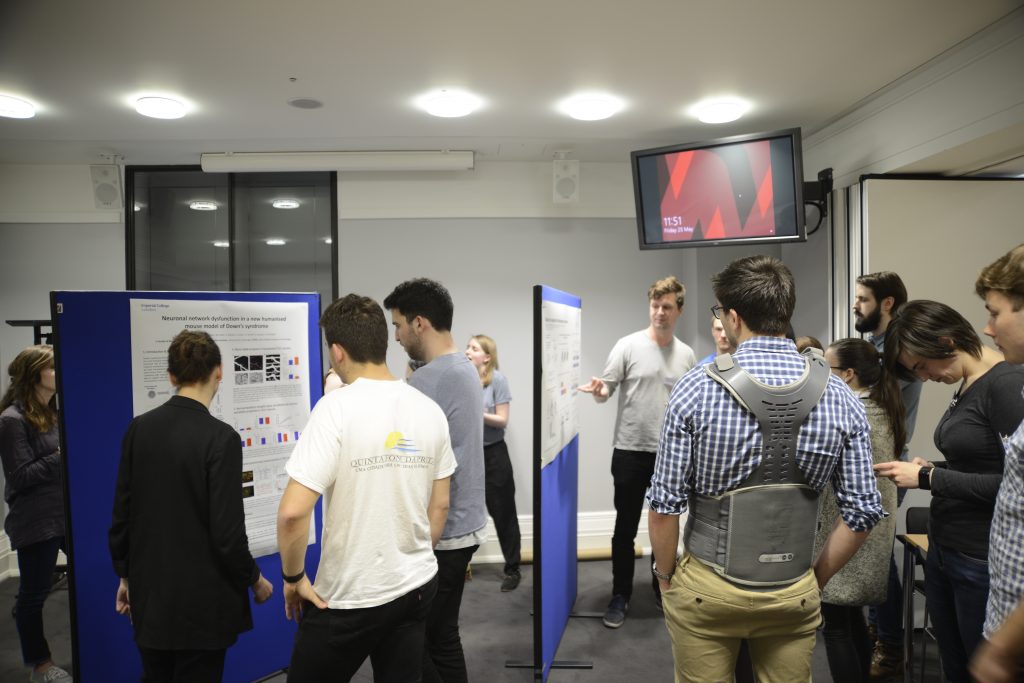
This also gave time for students to visit the vast collection of medical based artefacts from all over the world, collected at the Wellcome Collection. Especially noteworthy in the collection, is the presence of all volumes of the printed version of the first sequenced human genome.
The unanimous highlight of the day however, was an afternoon careers panel which brought together a unique collection of individuals who have gone on to follow a range of post-PhD career paths. The panellists represented diverse fields, including the biotechnology, pharmaceutical, scientific editing, management consulting and patent law industries. Chaired by our own Social Representative, Matt Newton, the panel discussion allowed the speakers to share with us industry-specific insights, whilst also being open to discuss the factors that helped shape and influence their decisions at key moments of their respective careers. We would like to send a huge thank you to the following individuals for sharing their time and knowledge with us all!
- Dr Mark Hammond (Director; Deep Science Ventures)
- Dr Sophia Cameron-Christie (Postdoc; AstraZeneca)
- Dr Sarah Linnett (Trainee Patent Attorney; J A Kemp)
- Dr Ashleigh Johnston (Associate Editor; Scientific Reports)
- Dr Miriam Weiss (Associate Consultant; ZS Associates)
- Dr Fiona Lethbridge (Senior Press Officer; Science Media Centre)
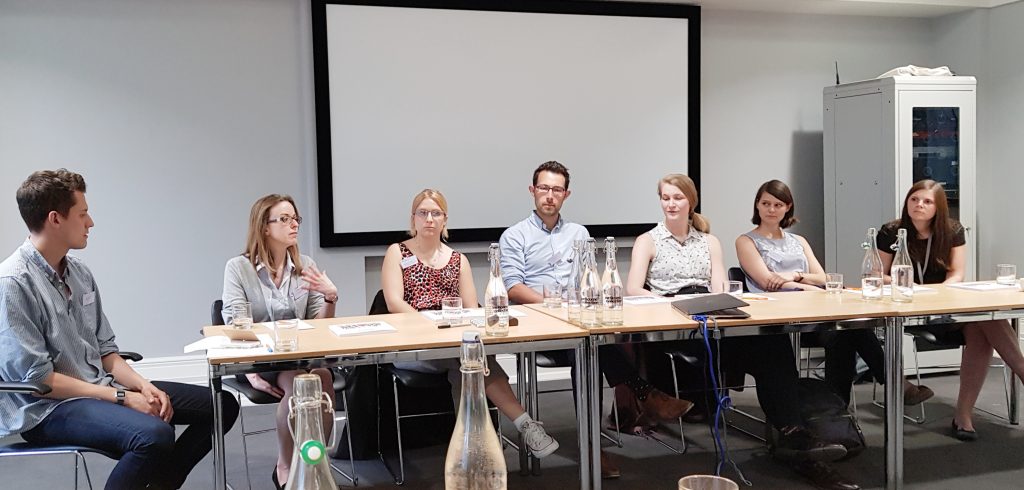
Following the panel, the students received a talk from the day’s keynote speaker, Professor Steve Jackson, who is currently a senior group leader at The Gurdon Institute (University of Cambridge), and fellow of the Royal Society. His talk entitled “Cellular responses to DNA damage: mechanistic insights and applications in cancer therapy” illuminated how basic molecular understanding of cellular processes can be translated into clinical applications, and how he was able to follow the success journey of a drug from the lab bench to the patients in clinic.
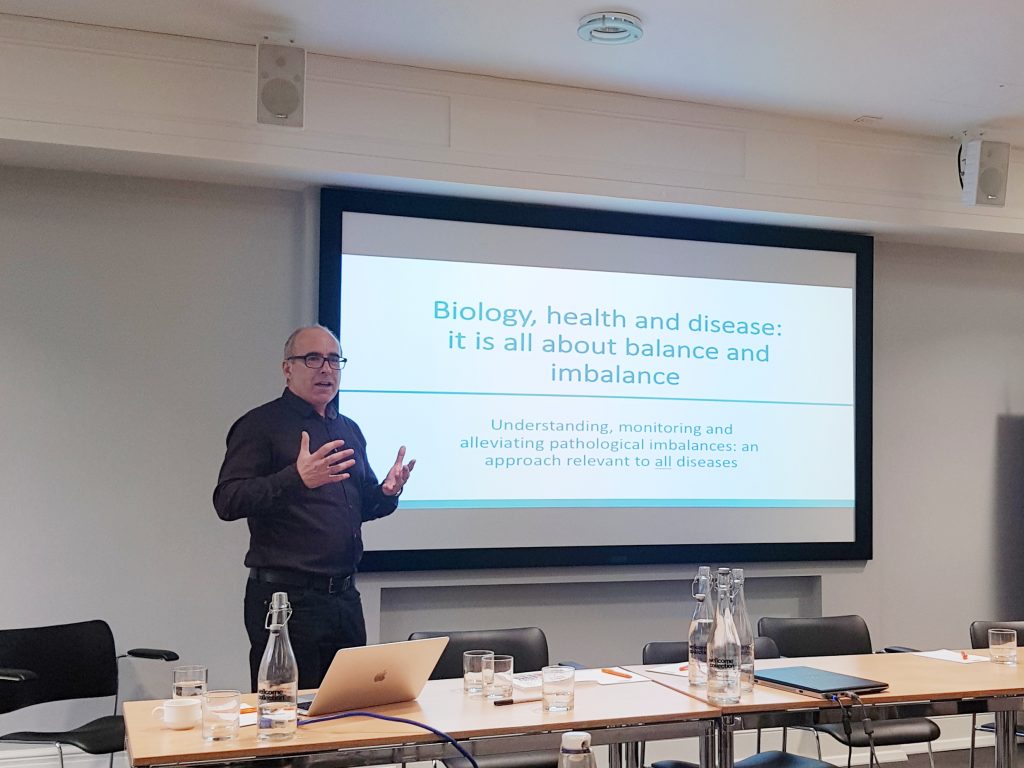
The day culminated with a networking reception, where students had the opportunity to continue discussions with panelists and speakers from throughout the day. All in all the day was a triumph for the LMS Student Committee, who put together this event, and we very much look forward to the 2019 Student Retreat!
Finally we would like to take this opportunity to acknowledge generous funding from both the Imperial College Graduate School and Medical Research Council.
